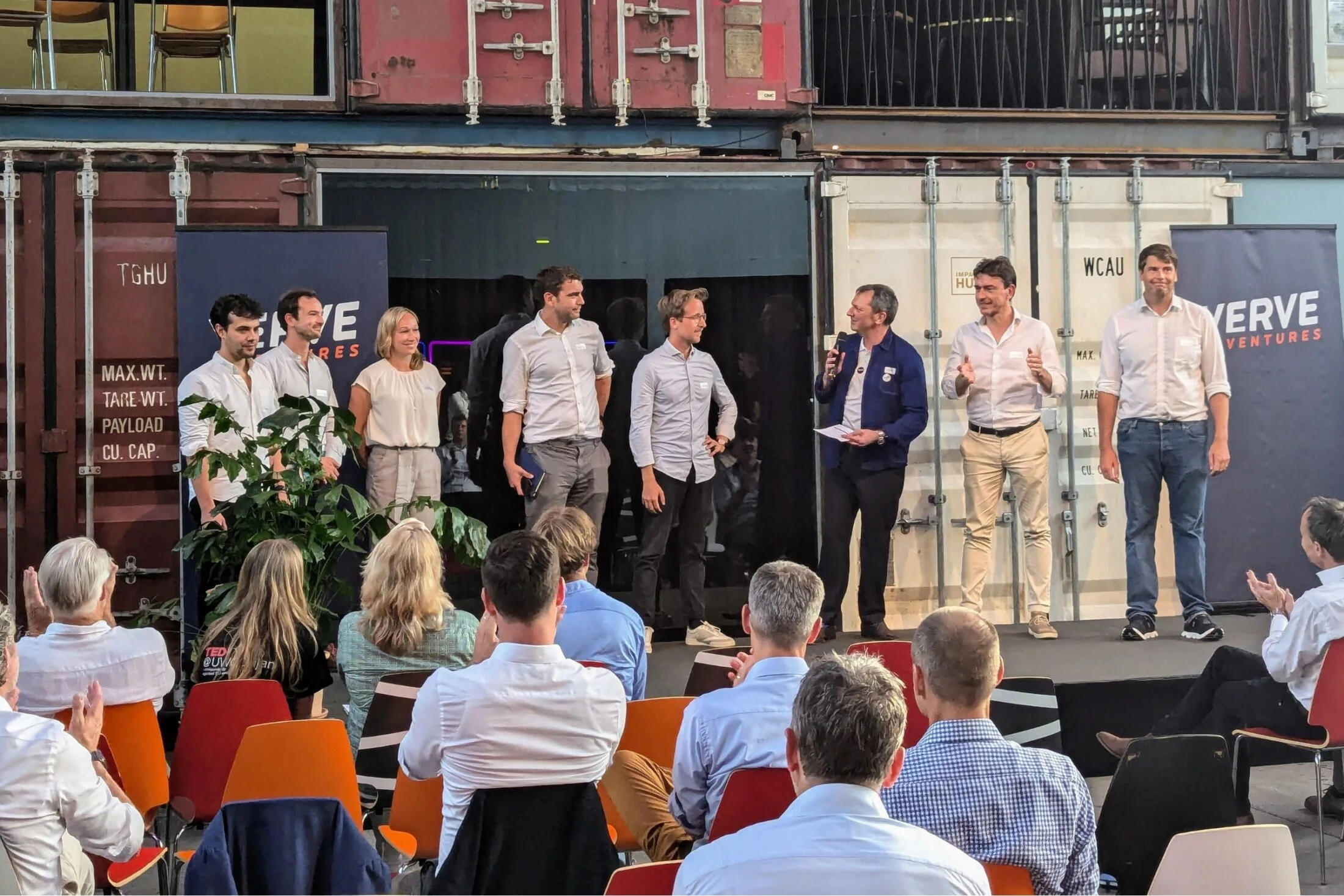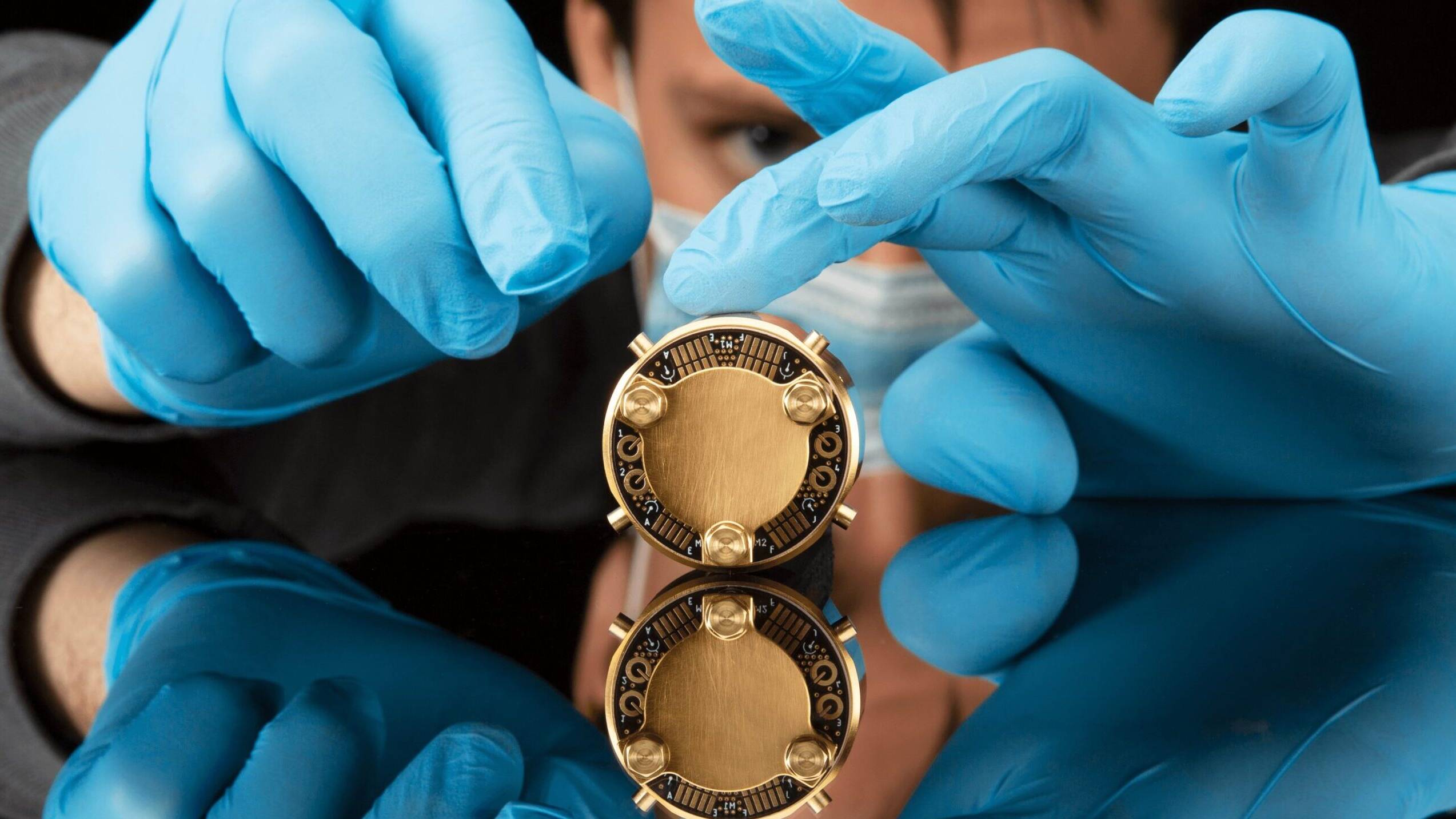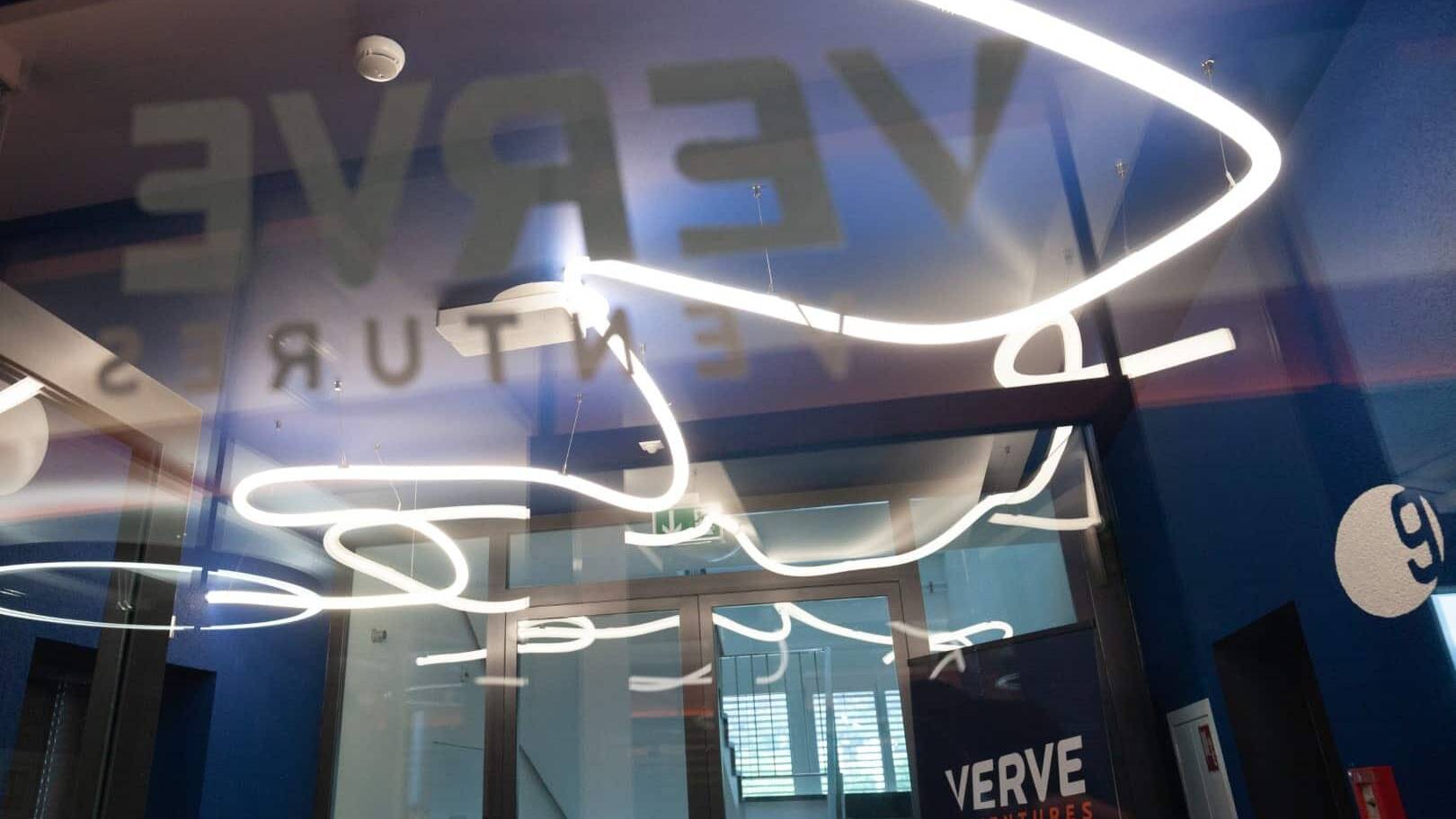Kiwi’s co-founder Christian Sinobas explains how microfinace is changing, why micro merchants are good customers and how he manages a startup on two continents.
Christian, you’re a finance professional with a keen interest in poverty reduction. How does that go together?
Years ago I started my career working for J.P. Morgan. I learned a lot there, but also found out quickly that I wanted to do something meaningful in life. A friend of mine told me I should look at microfinance, and so I did. This was even before Mohammad Yunus won the Nobel Peace Prize for his achievements and transformed microfinance from a niche to a popular investment theme. Eventually, I started to work for Positive Planet, a french NGO (at that time still called Planet Finance). Our work consisted of creating microfinance institutions from scratch, a task that is quite technical but also very rewarding because of the impact it has in reducing poverty.
Did you find the sense of purpose you were looking for?
I realized many different things. The first important learning concerns inequality. The cherished notion that you can achieve everything if you really want is delusional. If you’re born in the wrong place on earth, you simply never get a chance, no matter what you do. I saw with my own eyes how much people have to work to survive, 14 hours per day, 7 days a week, raising children at the same time, without any real chance of improving their future. For all these people, access to capital has a profound positive impact, and microfinance is one of the ways out of poverty. The success we in the western world usually attribute to our talents and hard work is mainly a consequence of being born in the right place. The second thing I realized is that I knew nothing. I wanted to help entrepreneurs in emerging markets, but I realized that if I want to be credible, I have to actually live there to understand them. So I moved to Latin America and stayed for five years. I’m skeptical when I hear of young westerners who go somewhere for 6 months to change the world, they usually achieve nothing. For many of them it is just about ticking a box on their bucket list and enjoying a rewarding experience. If you really want results and make a positive change, you have to persevere.
Since you worked in that field, what is, in your opinion, the biggest achievement of microfinance?
Microfinance has shown that small entrepreneurs are creditworthy. It has demonstrated that it is not because of excessive risks that they usually don’t have access to credit, but because traditional banks are simply unable to offer them adequate products. Giving poor people access to capital while being profitable is the big success of microfinance.
“Microfinance has shown that small entrepreneurs are creditworthy”
When people talk about fintech, they usually think about the impact fintech companies have on traditional banks. But what about the impact of fintech in the microfinance space?
Traditional microfinance has reached its limits. We’re now at a point where technology will profoundly change the way we think about microfinance, and the way risks are assessed. The advent of data science brings incredibly powerful tools to the field, at ridiculously low costs. This is also made possible by the dramatic increase of usage of debit and credit cards in emerging markets.
What’s so different about paying with cards?
Imagine a typical micromerchant in an emerging market: A hairdresser who owns one or two chairs that serve as a hair salon, or someone selling food on the corner from a tiny stand or a person who sells clothing in an open market. They usually work alone, some even employ other persons, so we are talking about the tiniest of businesses possible. But collectively, they represent a huge industry. These people usually are the main breadwinner for their families. With the small sums they handle, small shopkeepers usually don’t keep books, let alone audited income statements and balance sheets. But when micromerchants are enabled to accept card payments and replace cash transactions, an abundance of data is created.
And this is what you want to achieve with the card reader Kiwi sells?
Kiwi was always about more than just payments. But don’t underestimate the impact even a simple card-reader has on small merchants. People don’t want to carry cash with them anymore, especially in neighbourhoods where robberies are common. If a merchant accepts cash only, he will have to send these customers to an ATM. Often they don’t bother to come back and buy somewhere else. So the first message our technology sends is: you’re not going to lose clients like this anymore. But this is just the starting point. From the moment merchants use our card reader, we can offer them additional services.
Before we go into details, let me ask you a simple question: Who is your typical client?
They are micro merchants like the ones I described, hairdressers or owners of bodega corner shops, who deal with small payments. We have close to 20’000 of them as clients in Mexico, the country we’re active in at the moment. On average, these merchants take home about CHF 500 per month to provide for their family.
So that card reader you sell for about CHF 20, what does it do except process card payments?
It reduces the vulnerability of these people. At any given time, when they don’t have enough cash to buy new merchandise, they can apply for a small loan with three clicks on their kiwi app. This is possible because we have the payment data we can mine. Unlike a microfinance institution, we don’t need to send out thousands of loan officers that try to assess how small businesses are performing. Without this costly approach, and with all the data to price risk correctly, we can offer loans faster and on much cheaper terms. The loan sum for every merchant is actually pre-approved by our algorithm, so the payout is instantaneous.
How much cheaper are your loans?
Compared with traditional microfinance, we will be able to cut the rate the borrower pays in half, and reduce it further in the future.
Cheaper loans are good news, as is any form of financial inclusion. But we should also talk about borrower protection, a sensitive issue in microfinance. Can you make sure people will not end up overly indebted or, instead of buying merchandise to grow their business, go out and buy a big new TV set?
First of all, we are talking about small short-term loans here. The biggest loans we offer today correspond to around CHF 1000 and the payback period is 2 months. The actual size of the loan is of course based on the borrowers’ income, so excessive debt is not an issue here. When it comes to the use of the loan, we impose no conditions. Any attempt of controlling the intended use would be unethical, in my opinion, and also unpractical. There is the problem of circumvention and we don’t want to push people to lie, to the contrary. We grant loans to merchants with good results on the principle that they know best what is useful for them.
How do the merchants repay the loans?
This is the beauty of our business model because the installments are deducted automatically from the payments they receive with our card reader. We don’t have to worry about late payments and for the borrower, this is a very convenient way.
And how do you finance these loans as a startup?
For the time being, the loan book is still small enough so that we can finance them from our balance sheet. In the future, microfinance funds, the biggest of which are based in Switzerland, might refinance them. We are already in discussions with them.
Will traditional microfinance institutions in emerging markets copy your business model?
The abundance of data that comes with card payments allows different new actors to enter this field, and this is a good thing. The market is incredibly large and gives us ample room to grow. In Mexico alone, there are around 8 million young (below 40 years old) merchants in cities and the areas surrounding cities. Microfinance banks are very personnel-intensive operations. They need scores of streetwise loan officer that travel around and meet potential clients. For these banks, it is not an easy step to switch to a data-driven business model like ours.
” For these banks, it is not an easy step to switch to a data-driven business model like ours”
Microfinance funds underline that the funds they provide reach a large number of female and rural borrowers, which has a high social impact. You address a more tech-savvy, urban clientele. Do you have a lesser societal impact than traditional microfinance?
There is no one-size-fits-all solution in microfinance. We do what we can do, and for that, we need network coverage which is simply not yet available everywhere. We can, however, enlarge the market because we serve merchants that might not have access to loans otherwise. And I think it is a good thing to push other actors to intensify their work in regions where we cannot go yet.
How do you reach out to merchants?
We have a digital-first approach and use facebook ads, google adwords and marketing on e-commerce platforms like Amazon. We want to convey the message that our card reader will give them peace of mind and better opportunities.
What else besides loans can you offer to merchants based on the sales data you receive?
We already have a market insights program in beta testing, and I think it’s potential is huge. With micro-merchants, you cannot just send them fancy graphs. You have to give them easy and actionable formulas how to increase their sales, like, we see that you don’t sell ice-cream, why don’t you add this product to your stock and place them next to the cold drinks, this kind of recipe. We can easily track if our suggestions are useful or not. We can reduce the competitive disadvantage they have compared to large stores.
Kiwi is a startup that has about two dozen people on two continents, in Switzerland and Mexico. How do you manage such a firm?
First of all, Mexico is not just a country served. It is where our first operations are. We have two of the co-founders and the majority of our people working there, amongst them 10 in a call center. Switzerland is an IT and data science outpost with 4 people, me included. We are working close to EPFL, where we can find exceptional talents we would struggle to find in emerging markets and for more reasonable salaries than in Silicon Valley.
How important is it to be close to Switzerland’s big pools of capital?
The three biggest players in microfinance, responsAbility, Blue Orchard and Symbiotics, are all based in Switzerland, and the base of private investors willing to invest in startups is large. But it is about more than just capital, the international networks are also very strong here. With investiere, we raised not just money but also found Silvio Barzi as an investor. He is a board member of the payment giant Mastercard.
What will the future bring for Kiwi, not the next months, but long-term?
We didn’t quite realize this when we started, but I think with our business model we have hit a very interesting thing. We can grow our mass market business not just in Mexico, but also in other countries, even on other continents, while managing core capabilities like IT and HR with a small dedicated team in Switzerland. With a bit of imagination, you could come up with a Swiss retail bank with millions of clients – none of them based in Switzerland, but in emerging markets.

Written by
Investors

Our sophisticated investors include visionary family offices, leading wealth managers, institutions, founders, and senior executives. These individuals and organizations are all committed to shaping the next generation of innovation.
More News
Growth capital for quantum cooling startup kiutra
The financing round is led by the new shareholders TRUMPF Venture and the Swiss deep-tech VC Verve Ventures. Together with the existing investors High-Tech Gründerfonds (HTGF), APEX Ventures and the Initiative for Industrial Innovators, the syndicate is investing a mid-seven-digit amount in the spin-off from the Technical University of Munich.
“Constructive Venture Fund has access to a very strong deal pipeline”
In this interview, Patrick Schmid explains why a quarter of Avobis’ employees work in the innovation department, how renters can become owners and what the next phase of Constructive Venture Fund will look like.
Shaping the Digital Future of Venture Capital
Steffen Wagner, co-founder of Verve Ventures, has just been named digital shaper 2019 by Le Temps and BILANZ. Verve Ventures is increasingly recognized as a role model of how the venture capital industry is transforming. In this article, he sets out in four points how Verve Ventures has built a highly scalable digital venture capital platform - and how technology helps looking for startups, making investments available for a wider investor base, and manage the post-investment phase.


